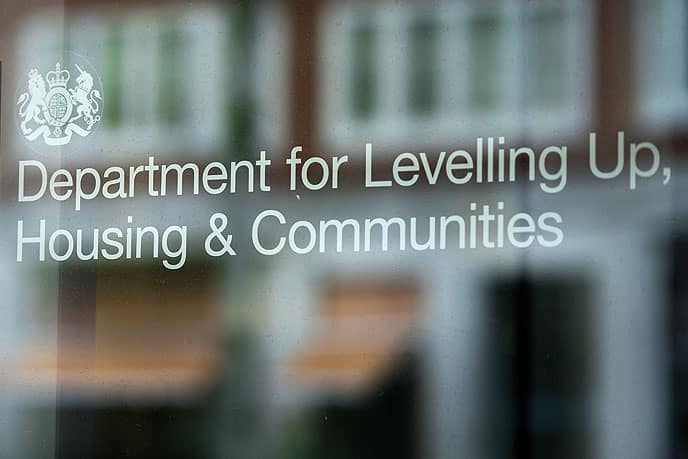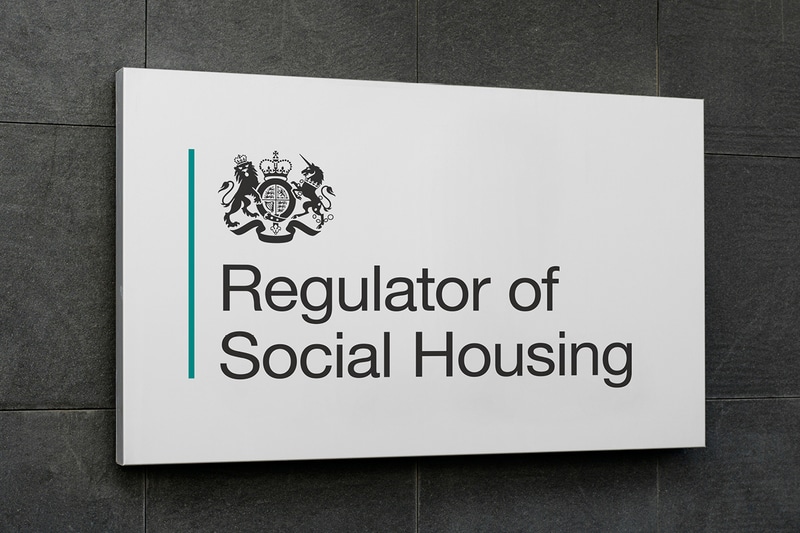This Month In Social Housing: January 2024
A new year is upon us and, thankfully, the ‘feels like three months’ month of January is now done and dusted. Should 2023 be anything to go by then the world of social housing looks likely to be buffeted by all manner of legislation changes, shifts in government policy, and an ever-evolving slew of external pressures. If keeping abreast of the ‘blink and you’ll miss it’ social housing news cycle gets a bit too much for you at times, then you’ll be pleased to learn that our handy news round-up feature This Month in Social Housing is back for 2024. So, sit back, grab a beverage of your choice and peruse the five most pertinent social housing news stories of the past month, packaged up in a nice, easily digestible format for your viewing pleasure…

Housing Ombudsman Signs Agreement with New Build Watchdog
The Housing Ombudsman and New Homes Ombudsman have outlined collaboration through a memorandum of understanding (MoU), grounded in the Building Safety Act 2022 and Housing Act 1996 provisions. The voluntary New Homes Ombudsman’s functions, cooperation, and communication arrangements are detailed in the MoU. It clarifies jurisdictional overlaps, ensuring clarity on investigated complaints. New Homes Ombudsman’s launch approval in May 2022 follows a joint application by the New Homes Quality Board (NHQB) and The Dispute Service. House builders, under a new code of practice by NHQB, will fall under the New Homes Ombudsman’s purview. The initiative aims to address redress gaps for new build owners. Both watchdogs will collaborate on overlapping complaints, share best practices, and communicate. The NHQB, addressing calls for accountability, began in February 2021 to enhance protections for new build buyers.

Awaab’s Law Proposals Require Landlords to Carry Out Emergency Repairs Within 24 Hours
Social landlords will be required to complete emergency repairs within 24 hours of identification, according to proposals set out for Awaab’s Law as outlined in a consultation by the Department for Levelling Up, Housing and Communities (DLUHC). The consultation comes six months after the Social Housing (Regulation) Act became law and mandates hazard investigations within 14 days, initiating fixes within seven days, and urgent repairs within 24 hours. Hazard categories include gas leaks, broken boilers, electrical hazards, significant leaks, and pervasive damp affecting residents’ health. Named after Awaab Ishak, the Rochdale toddler who tragically died due to damp and mould exposure, the law requires swift actions to address health hazards, with landlords facing court action and compensation orders for non-compliance.

CIH Backs Government Decision to Allow Inflation-Linked Increase in Social Rents
The Chartered Institute of Housing (CIH) has highlighted its support of the government’s decision to permit an inflation-linked increase in social rents, allowing a maximum hike of 7.7% for tenants starting in April. Social landlords can implement this increase, based on the current rent settlement, which permits raising rents by the Consumer Price Index (CPI) plus 1%. James Prestwich, director of policy and external affairs at the CIH, said: “CIH believe the imperative to invest in homes and services does necessitate an index-linked rent increase whilst also calling upon social landlords to seek to provide sufficient support to those tenants hardest hit by this increase and least able to afford it.” However, the Social Housing Action Campaign criticised the government, accusing it of quietly announcing the news to avoid attention in an election year, sharply impacting vulnerable tenants. The settlement resumes after a 7% cap set by Chancellor Jeremy Hunt for the current financial year.

RHS Intimates Expected 1.5% Increase in Landlord Fees for Q1
The Regulator of Social Housing (RSH) in England has announced that it expects a 1.5% increase in landlord fees for the first quarter, with costs for larger providers eventually doubling long-term. Anticipated to be no more than £1.37 per unit for April to June 2024, fees for registered providers with over 1,000 homes will later see a significant hike in July, pending consultation analysis. The proposed changes aim to align with the new Social Housing (Regulation) Act, ensuring providers cover the full cost of regulation. The National Housing Federation has expressed concerns about the impact on registered providers, urging the RSH to consider the challenges faced by these entities, especially smaller and supported housing providers.
Six in 10 MPs Believe Increased Funding is Needed for HAs
A poll commissioned by housing association Hyde reveals that six in 10 UK MPs believe social housing providers require additional funding from the government. Over half of voters (53%) expressed a preference for a political party committed to increased funding for social and affordable housing. Among MPs surveyed, 76% feel their party’s plans for future social and affordable housing provision lack clarity. Almost two-thirds agree that social housing providers need more financial support, with a higher proportion among Labour MPs (90%) compared to Conservative MPs (40%). The public’s support for social housing investment is stronger among younger voters, emphasizing the need for clearer plans and increased funding.
That’s our first round-up of the year ticked off the list – hopefully you found it quick and easy to read and you’re now all up to speed with the goings on within the sector throughout this fledgling month of 2024. We’re all off to double check our calendars to confirm that January doesn’t actually have 90 solid days, but when we’ve done that we’ll be back here at the end of February to bring you yet another burst of neatly packaged social housing news. See you in 29 days’ time!
- Social Housing 2025: The Experts Predict What’s Next - January 2, 2025
- This Month In Social Housing: November 2024 - December 3, 2024
- Leveraging AI in Social Housing: Building a Data Strategy for Enhanced Compliance and Efficiency - November 26, 2024